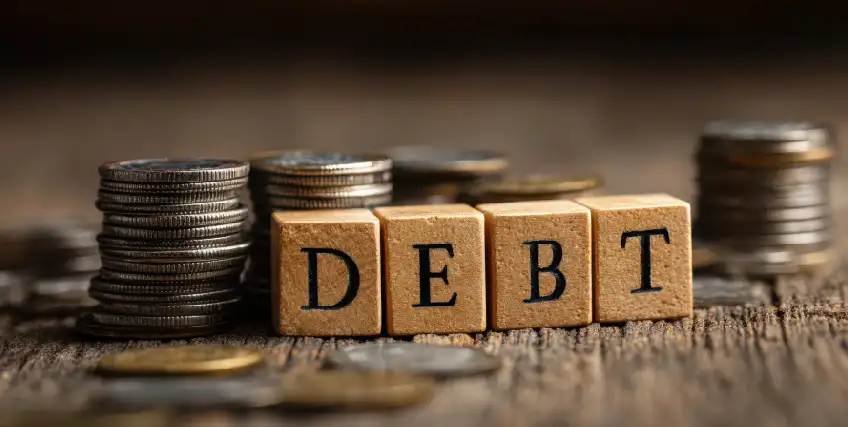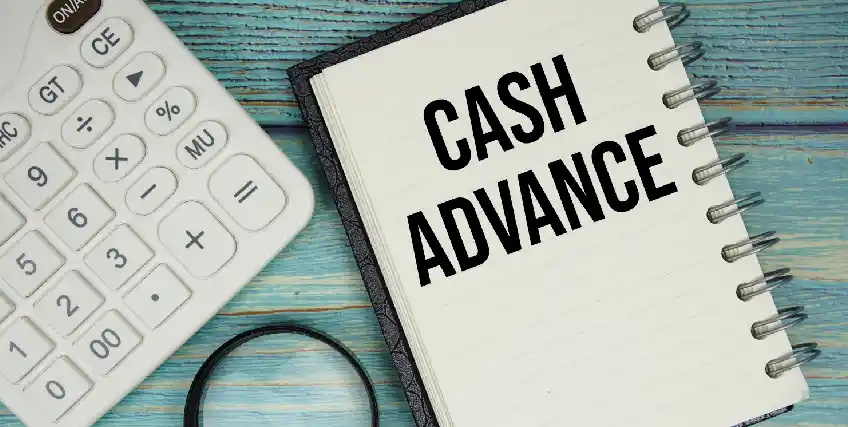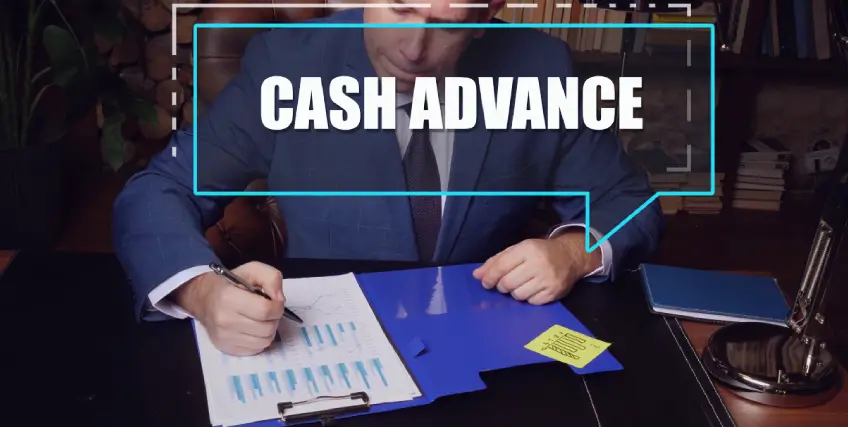How to Use an Unsecured Debt Consolidation Loan to Escape Merchant Cash Advance Cycles
December 16, 2025 | Last Updated on: December 16, 2025

Merchant cash advances (MCAs) may be easy to get. Small business owners struggling with cash flow often use them for quick working capital but once you take one, it’s easy to take another. Before long, you're stuck making daily or weekly payments that chip away at your cash flow. The problem escalates fast, especially when multiple MCAs are stacked. Instead of growing, your business is trapped in a repayment cycle.
Here’s where an unsecured debt consolidation loan steps in. Unlike MCAs, this type of loan combines all your high-interest debts into one monthly payment. No collateral is needed, and repayment terms are more manageable.
Some of the best unsecured debt consolidation loans even come with lower interest rates, helping you save money each month. Businesses across the U.S. are now turning to unsecured business consolidation loans as a safer alternative to the MCA grind.
It’s not magic, but it’s a strategic move and for many small business owners, it’s the only way to stay afloat.
What Is an Unsecured Debt Consolidation Loan?
An unsecured debt consolidation loan is exactly what it sounds like - it combines multiple debts into a single loan, without requiring collateral.
You get one predictable monthly payment. You don’t need to put your business assets like property, vehicles, or equipment at risk and since this is an unsecured loan, approval depends on your creditworthiness, cash flow, and overall financial situation.
That’s what makes it different from a secured loan or a personal loan. With a personal loan, you may face stricter usage limits and lower loan amounts. A secured loan puts your assets on the line if you default.
By contrast, unsecured business consolidation loans give business owners the flexibility to consolidate MCAs, high-interest credit card balances, and other short-term debts into a single loan with fixed repayment terms.
Some borrowers even use unsecured credit card consolidation loans to combine revolving credit balances with MCA debts. But for most small businesses, it makes more sense to go with products designed for commercial use.
You can often get better repayment terms, lower annual percentage rates, and fewer surprises because the best unsecured consolidation loans are built for clarity, not confusion.
Why MCAs Are a Dangerous Cycle for Small Businesses
MCAs can feel like a lifeline but in reality, they can quickly trap your business in a debt cycle. Here’s how:
Daily Withdrawals Drain Your Cash Flow
Most merchant cash advances require daily or weekly payments. These are usually auto-debited from your bank account, regardless of your cash position. That’s a problem when sales slow down. Your savings account drains faster than expected, leaving you scrambling to cover rent, payroll, or vendor bills. It puts your operations at risk.
Stacking MCAs = Debt Spiral
When one MCA isn’t enough, many businesses take a second or third. This is called “stacking.” Each new advance comes with its own fees, payment schedule, and repayment terms. Suddenly, you’re making multiple payments every week. That’s how a short-term fix turns into long-term chaos. And this chaos often leads businesses to default.
Hidden Fees & Limited Flexibility
MCAs are not loans, so they’re not regulated the same way. That means you won’t get an annual percentage rate or clear disclosures. You’re charged a “factor rate” instead, which makes comparing costs difficult. Prepayment of penalties? Often. Grace periods? Rare. Even if you want to pay off debt early, you may end up owing the same amount.
An unsecured debt consolidation loan brings structure. It replaces confusion with transparency. Even the best unsecured debt consolidation loans cost less over time compared to stacked MCAs.
How an Unsecured Debt Consolidation Loan Can Help
If you’re stuck in MCA repayments, there’s a smarter way forward. An unsecured debt consolidation loan won’t erase the debt, but it can make repayment manageable again. Here’s how it can help:
One Fixed Monthly Payment
Instead of juggling five different withdrawal schedules, you pay once a month. That makes budgeting easier. Plus, you’re not at the mercy of automatic ACH pulls that disrupt your daily operations. With one single monthly payment, you get predictability and peace of mind.
No Collateral Required
These loans are unsecured, meaning you don’t need to pledge any property or assets. That’s critical for small business owners who can’t risk their equipment or commercial space. Your eligibility depends more on your credit score, revenue, and debt-to-income ratio.
Lower Interest Rate & Longer Terms
MCAs are known for sky-high rates and short payback periods. With a consolidation loan, you’ll likely get a lower interest rate and a longer loan term. That translates to smaller monthly payments and more breathing room.
Many of the best unsecured consolidation loans offer terms that stretch from 12 to 60 months, with no prepayment penalty. If your goal is to pay off debt without destroying your cash flow, this is one of the most practical ways to do it.
MCA vs. Unsecured Debt Consolidation Loan
Choosing between a merchant cash advance and an unsecured debt consolidation loan? Each option impacts your cash flow, risk, and long-term financial health differently.
| Feature | Merchant Cash Advance | Unsecured Debt Consolidation Loan |
|---|---|---|
| Collateral | No | No |
| Repayment | Daily/weekly | Monthly |
| Interest | High (factor rate) | Lower interest rate (APR) |
| Flexibility | Limited | Greater flexibility |
| Risk | High (default, stacking) | Comparatively Lower risk |
Choosing the right path can save your business from spiraling debt. A consolidation loan gives you structure and more control over your repayment terms.
Where to Find the Best Unsecured Debt Consolidation Loans
You don’t have to guess where to find trustworthy unsecured debt consolidation loan options. Start with platforms that focus on business financing and offer transparency around terms, fees, and eligibility.
Online financing marketplaces let you compare rates, terms, and estimated payments from multiple financial institutions, which can come in handy.
Look for providers who clearly list their origination fee, annual percentage rate, and repayment terms. Avoid any that won’t share full disclosures upfront.
Credit unions may also offer unsecured business consolidation loans to qualifying small businesses. They usually come with lower interest rates and more personalized support.
Some fintech companies offer quick decisions ,but speed shouldn’t be your only priority. Always review the loan term, fixed rate, and whether there’s a prepayment penalty.
The best unsecured debt consolidation loans won’t just save you money, they’ll help you rebuild your credit history and improve your debt-to-income ratio over time.
What to Watch Out for Before You Apply
Not every loan with “consolidation” in the title is safe. Some are just as risky as the MCAs you’re trying to escape. Here’s what to be cautious about:
Predatory Loan Offers Disguised as Help
Some firms advertise “rescue loans” for MCA debt but lock you into even higher-cost products. These aren’t always labeled correctly and might still operate on a daily repayment model. If a loan offer seems too easy or too fast, check the disclosures. Confirm it’s a real unsecured debt consolidation loan with clear repayment terms.
Hidden Fees and Prepayment Penalties
Even some of the best unsecured consolidation loans can hide fees in the fine print. Look for mentions of origination fees, late fees, or early repayment charges. A legitimate loan should list all these clearly during the application process. Ask if you’ll be penalized for paying off your debt early and if there are flat monthly service fees.
Misleading Interest Rates and Terms
MCA companies use factor rates, which aren’t the same as APR. But even some consolidation loans will list only the base rate and not the true cost of borrowing. Always calculate the full annual percentage rate, especially if the loan includes upfront fees or short term. Use a debt consolidation calculator or ask the provider for a full cost breakdown.
Your goal isn’t just fast cash. It’s transparency, predictability, and a structured path out of debt.
Conclusion
You don’t have to stay stuck in the MCA trap forever. There’s a better way to manage your business debt, and it starts with understanding your options.
An unsecured debt consolidation loan won’t solve everything overnight, but it offers what MCAs do not: a clear structure. With a single monthly payment, a fixed interest rate, and no need for collateral, you can take control of your cash flow again.
The point is not just to pay off debt, but to rebuild your financial situation and move your business forward.
Explore unsecured business consolidation loans that are built for small business owners like you. Compare terms. Ask questions. Use the information in this guide to avoid bad deals and spot trustworthy loan options.
FAQs
How does an unsecured debt consolidation loan help with MCA debt?
It replaces multiple MCA payments with a single monthly payment. That means predictable costs, fewer late fees, and lower financial stress—without pledging any business assets.
Is a personal loan a good alternative to MCA debt?
Sometimes, but not always. A personal loan might have lower limits and stricter use restrictions. Unsecured business consolidation loans are typically more flexible for commercial needs.
What’s the difference between debt consolidation and refinancing?
Debt consolidation combines multiple loans into one. Refinancing replaces one loan with a new loan, usually with better terms or a lower interest rate.
Can I use an unsecured credit card consolidation loan for business MCAs?
Only if the MCA debt originated from card use. Otherwise, consider unsecured business consolidation loans for more relevant terms and higher limits.
Do I need collateral for unsecured business consolidation loans?
These loans are unsecured. Your creditworthiness and business financials matter more than assets.
Frequent searches leading to this page
Related Articles
Understanding the True Cost of Business Cash Advance Loans and MCAs
February 5, 2026
Merchant Cash Advance Direct Lenders: Red Flags and Green Flags to Spot Online
January 14, 2026
The Growth Loop: Using a Cash Advance for Small Businesses to Fund Marketing Campaigns
December 23, 2025
Term Loans are made by Itria Ventures LLC or Cross River Bank, Member FDIC. This is not a deposit product. California residents: Itria Ventures LLC is licensed by the Department of Financial Protection and Innovation. Loans are made or arranged pursuant to California Financing Law License # 60DBO-35839




